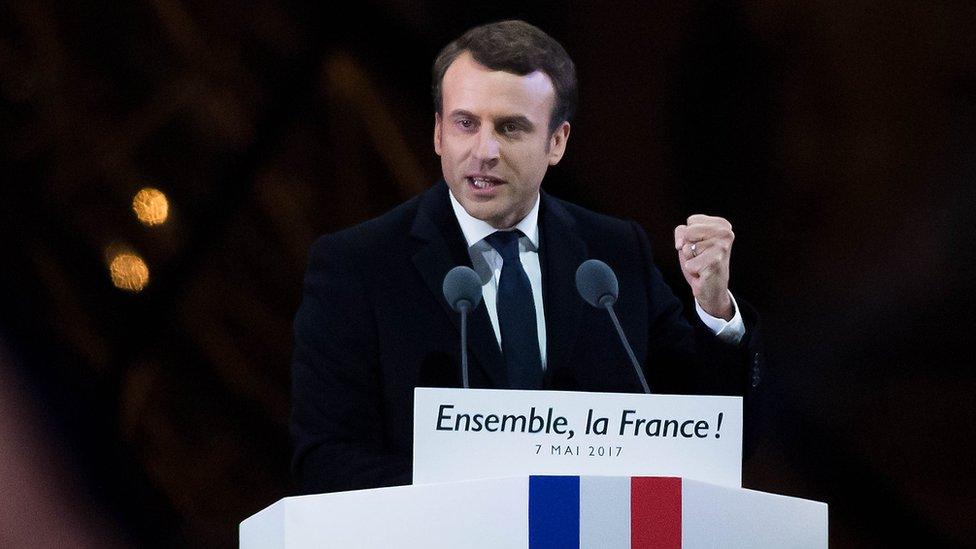France's Macron announces gender equal list of political outsiders
- Published
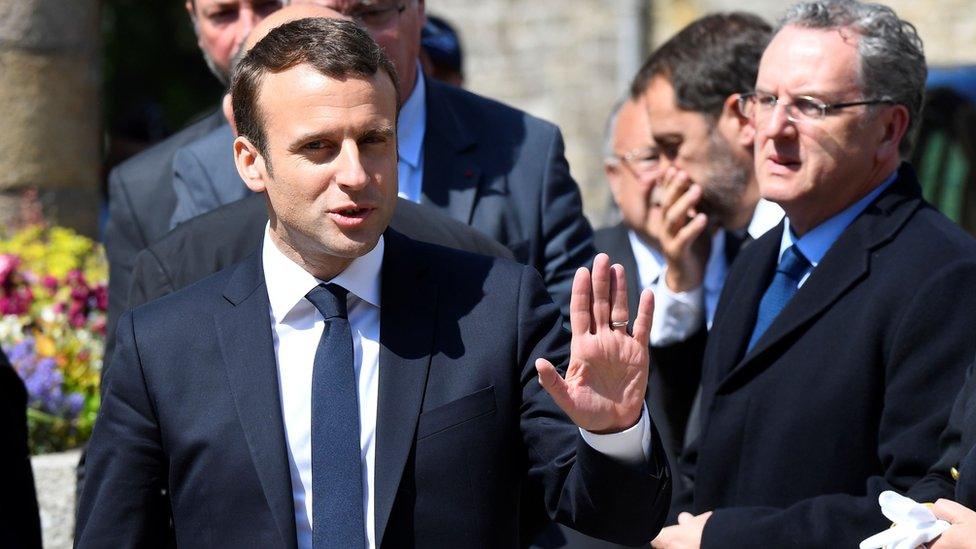
The president-elect had made several conditions for candidates to sign up to
The party of French President-elect Emmanuel Macron has selected a diverse list of 428 candidates for parliamentary elections next month.
Only 24 of those chosen are outgoing MPs from the current parliament.
Some 52% come from civil society and exactly half are women, the secretary-general of La République En Marche (Republic on the Move) said.
Richard Ferrand said the choices, external marked "the definitive return of citizens to the heart of our political life".
Mr Macron still needs to select more than 100 candidates for the 577-seat parliament and the party says its door is open to politicians from other parties to join.
Youngest is 24
The movement received more than 19,000 applications, Mr Ferrand said at a news conference, with 1,700 telephone interviews conducted with candidates.
The average age of the list is 46 "compared to 60 years for the average of outgoing MPs", he said.
The youngest candidate is 24 years old, while the oldest is 72. Around 10 candidates are unemployed, double that are retired and a handful are students.
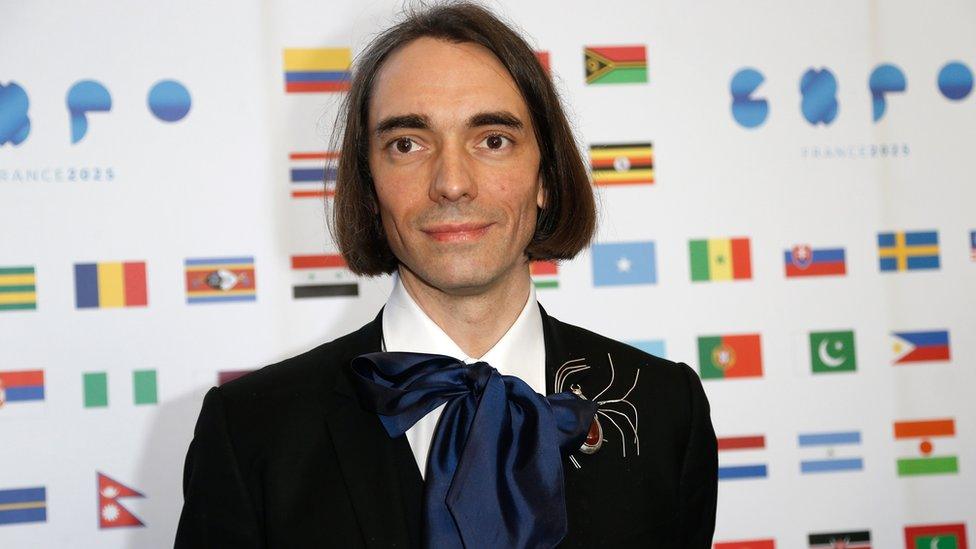
On the list: Cédric Villani, a famous mathematician, made the cut
All of the outgoing MPs chosen to run come from the Socialist Party of departing President François Hollande.
Mr Ferrand confirmed that Mr Macron's ex-cabinet colleague Manuel Valls - the former prime minister who has now burned his boats with his Socialists - had not been selected.
He said that he did "not meet the criteria" because he had already served three parliamentary terms.
But the party will not be running a candidate against him in his constituency in Essonne, south of Paris.
France had been waiting to see if the party list would live up to Mr Macron's pledge to clean up France's public life.
Who are they?
Many of the candidates are unknown to the public and there are few well-known personalities on the list.
Among the diverse candidates is Cédric Villani, a famous mathematician with a penchant for flamboyant bow-ties and spider brooches. He won the Fields Medal - seen as one of the highest honours in mathematics - in 2010.
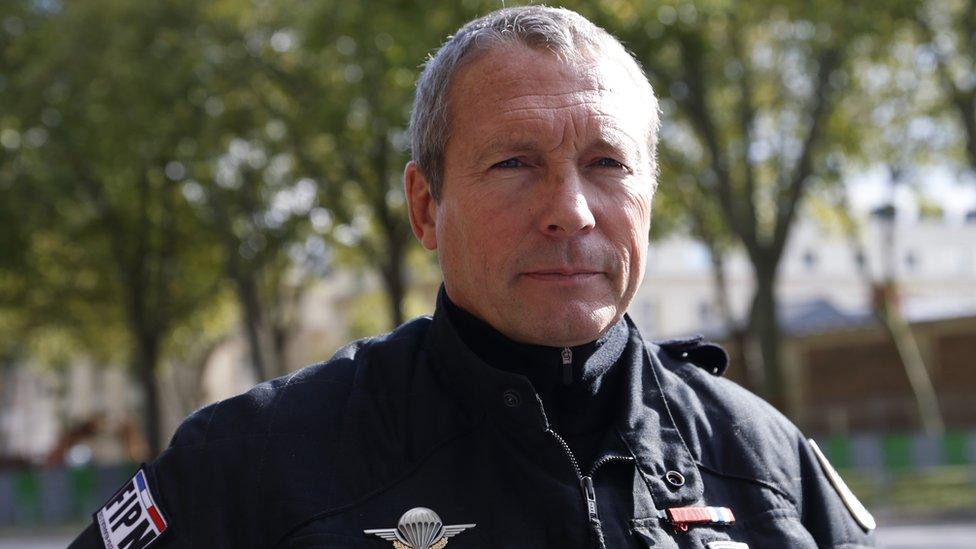
Elite police commander Jean-Michel Fauvergue is a candidate
François Hollande's communications advisor Gaspard Gantzer, former judge Éric Halphen and former bullfighter Marie Sara are also on the list.
Although no MPs of the Republican party are candidates, at least two former allies of Alain Juppé - who lost the centre-right party's presidential primary - have been selected.

Where's the right? Analysis: BBC's Hugh Schofield in Paris
It has escaped no-one's attention that there are nearly 150 names still missing.
Why this lack of clarity? Why the delay? Why is Mr Macron's party unable to do what it said it would do and give the country the full roster of names?
The answer is that it is engaged in some very old-style political calculation.
Emmanuel Macron knows that his weak point is his connection with the outgoing regime. He is a socialist at heart, as he has often said, and made his name serving a Socialist Party president.
If his party goes into the election fielding too many ex-Socialist MPs, it will be a sitting target for a vengeful Republican Party, eager to get its own majority and force the new president into a "cohabitation" (where the government is of a different colour from the president).
So the party wants a few more days to tempt over Republican Party defectors. Only in the middle of next week will it draw up its definitive list.

Some of the names previously announced include:
Jean-Michel Fauvergue, a police commander who led the elite RAID unit's response to several jihadist attacks including the Bataclan massacre in Paris
Laetitia Avia, a Paris barrister involved in solving corporate disputes and active in projects in sub-Saharan Africa
Farmer Jean-Baptiste Moreau, who heads a co-operative
Head teacher Mireille Robert, also involved in campaigns to tackle unemployment
Alexandre Aïdara, public servant who founded Citizen Regeneration think tank, ex-adviser to justice ministry
French media are already reporting errors on the list - including one candidate with a criminal record (the party said no-one with a criminal record would be eligible). Several people on the list have also denied they are candidates.
Why are the candidates being unveiled now?
Mr Macron was only elected on Sunday and the two-round parliamentary vote takes place on 11 and 18 June. But with only one month to go, every political party is now focusing on the race for the National Assembly.
His recently rebranded party is only 13 months old and Mr Macron needs to show he will have not just a mandate but the power in parliament to push through his programme.
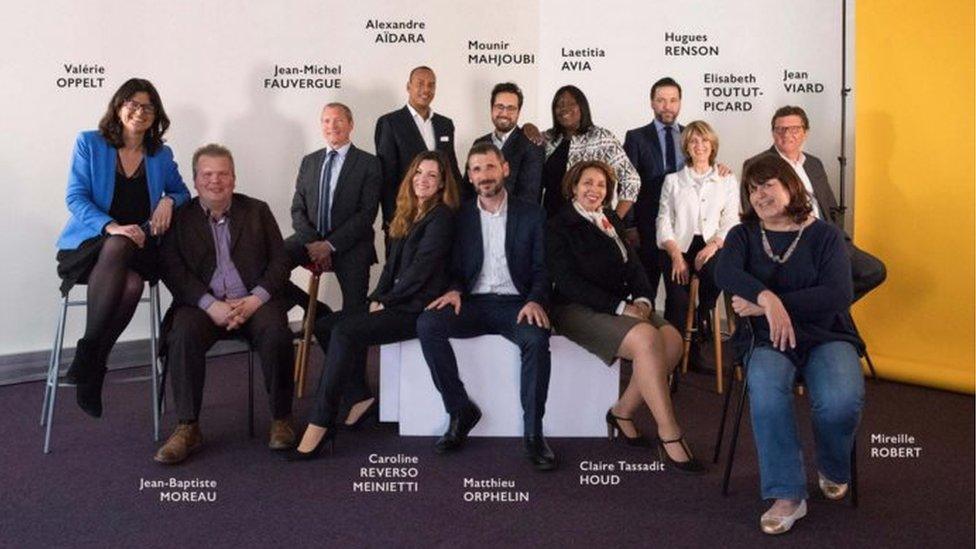
The first candidates revealed last month included a farmer, a businessman, a journalist and an elite police officer
How are the candidates chosen?
Nearly 20,000 people applied and a few thousand only added their names in the past few days following the election.
We know the Macron team set out five conditions:
Renewal for France (half will come from outside politics)
Gender equality (half will be women)
Clean criminal record - as part of commitment to clean up politics
Cross-section of political views - so there may be defectors from other parties
Sign up to the Macron reform programme as well as joining the party itself
While candidates can be members of other parties, they cannot run for them (apart from centrist party MoDem)
- Published10 May 2017
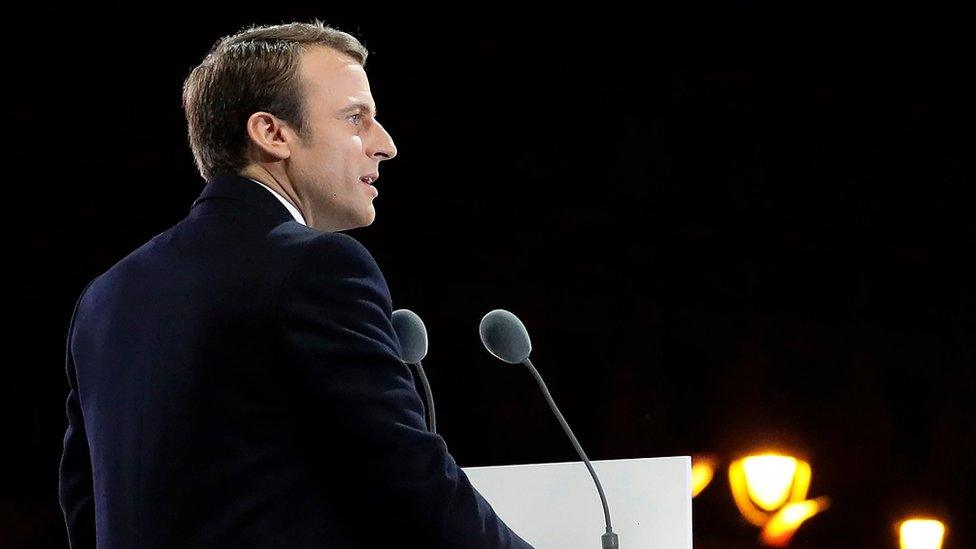
- Published9 May 2017
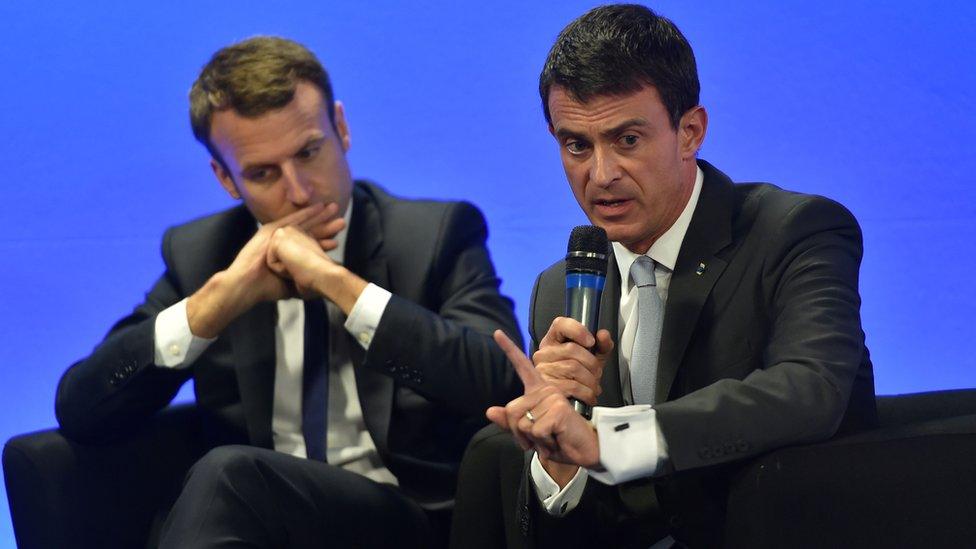
- Published8 May 2017
- Published11 May 2017
